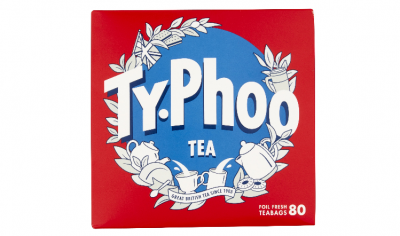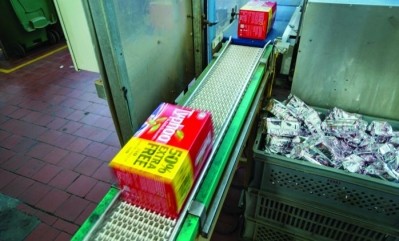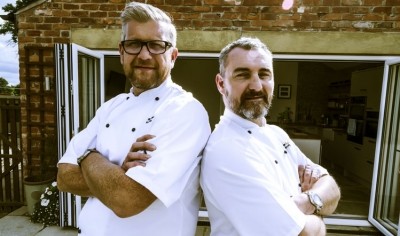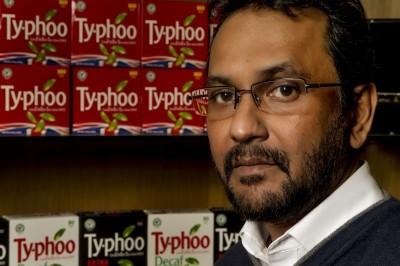The Big Interview
Typhoo Tea boss thinks outside the bag on Brexit
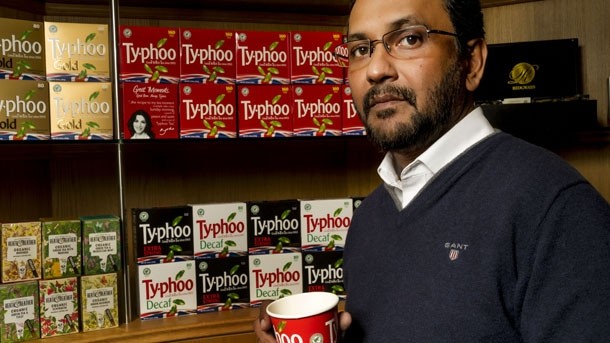
If someone was to compile a list of UK manufacturers that have a beef about Brexit, Typhoo Tea would have to be very close to the top.
Last November, the Wirral-based branded and own-label producer blamed a steep drop in annual pre-tax profits (from £972,000 to £56,000) and revenue (£81.7M to £74.1M) on the post-Brexit fall of the pound, and its impact on the cost of importing tea.
Leading the charge was Somnath Saha, the Indian-born chief executive who took on the top role at the firm in 2014. Claiming at the time that the value of the pound was “not sustainable”for his “really suffering” business, Saha was not afraid to let his fears be known.
Roll on a few months, and the softly spoken former financial director of the company is in a more positive mood.
While he maintains that the cost of his tea will inevitably increase, Saha believes a new spirit of collaboration between producers and retailers, along with Typhoo’s strong market positioning, will see the company through the storm.
Producing 125M teabags a week at its factory in Moreton on the Wirral Peninsula, Typhoo claims to be the largest own-label tea packer and the second largest tea manufacturer in the UK.
Formerly part of Premier Foods, the company has since 2005 been jointly owned by Indian conglomerate Apeejay Surrendra Group, and Global Tea and Commodities (GTC) – a UK-headquartered business.
With the firms owning tea plantations in India and Africa respectively, Saha says Typhoo benefits greatly from the vertical supply model.
Vertical supply model (back to top)
“Typically, our black tea is 60–70% a mix of Kenyan and Assam [from India], so we have a very good vertical integration benefit,” he claims.
“With good access to the market, we are more in control of our buying, and more in control of our quality.”
Saha is also upbeat about Typhoo’s strong own-label presence, and a raft of new teas that are meeting the growing demand for fruit, herbal and speciality flavours.
“Own-label has been a substantial growth area for us in recent years – including premium and discount retailers,” he says.
“Green tea is a growing market for us as well. We’ve just launched a five-strong range of Organic Super Teas under the Heath & Heather brand. The teas include Root Remedy, which contains turmeric and ginger, and Relaxing Night Time, which has camomile and valerian root.”
Other brands within the Typhoo portfolio include Welsh tea Glengettie, Scottish variety Melrose’s, instant tea Lift, speciality tea Ridgways of London, and coffee brand Red Mountain.
Ultimately, however, the Typhoo Tea brand remains core to the business, and the range – that includes Decaf, Gold and Extra Strong variants – has been backed by a new TV-led advertising campaign featuring Nigella Lawson enjoying a Typhoo ‘moment’.
“Nigella is a household name,” Saha says. “She crosses all demographics and will be a great ambassador for Typhoo.”
Tough negotiations with retailers (back to top)
Investment into the brand will no doubt help Saha in what clearly will be tough negotiations with retailers in the months ahead.
He acknowledges that since the Brexit vote, foreign currency fluctuation has raised the cost of raw tea – reportedly from £90–100 to £120–150 per 80kg bag in 12 months. Consequently, the cost of a cuppa will rise.
“It’s a really serious situation. Even though the industry is trying its hardest to alleviate some of these cost pressures, unfortunately, the effects of inflation are currently unavoidable.”
Saha maintains, however, that producers and retailers are collectively aiming to mitigate price rises as much as possible.
“There have been a lot of changes in the food industry in the past few years,” he says. “There is a lot of collaborative discussion going on, and everybody is working together on how to stabilise the situation.”
He is also keen to point out raw material cost increases are creating inflation for the whole UK economy – as reflected in the latest figures from the Office for National Statistics, in which the Consumer Price Index measure of inflation rose from 1.8% in January to 2.3% in February.
“There are price increases coming – not only for the tea, but for everything. But I think retailers are sensible and manufacturers are sensible. The situation will slowly stabilise.”
Cost increases have also encouraged Saha to focus on an “end-to-end analysis” of Typhoo’s supply chain operations to cut out any wastage.
Cut out any wastage (back to top)
“The whole team is working on how we can improve stock availability, stock management, transport management – everything.
“When you are in a tight situation, you have to look in every corner. Now is the time to see if there is any wastage, and restrict it,” he explains.
This is where he believes his experience in finance will put him in good stead. Saha describes a finance director has the “wheel of the business” – someone who has to understand every aspect of a firm’s operation.
“Whether it’s a food business or not, a finance director needs to know the supply chain, the costs, the product and the operation. So, stepping into leading this business, I know what the priorities are.”
One area of focus is exports. Saha says English tea brands are respected globally for their quality, and overseas markets present an opportunity.
“Currently, 95% of our sales are domestic, but there is a lot of potential in places like the Middle East, the US, Canada and Australia. The quality of English tea is far better than anywhere else.”
With the export potential, the Nigella marketing push, the growth of speciality and green tea, and a greater level of co-operation from retailers, it seems the gathering clouds could yet prove to be a storm in a teacup.
Watch the Typhoo boss talk in-depth about the rise of the green tea sector, the impact of Brexit on costs and his outlook for the future of the food industry in our exclusive video interview.
Also, don’t miss our photogallery tour of Typhoo’s tea plant on the Wirral.
Somnath Saha
JOB TITLE: Chief executive
DOMESTICS: Married, with a daughter and a son.
PREVIOUS ROLES: Saha joined Typhoo as finance director in 2009, after 10 years with steel and wire rope manufacturer Usha Martin.
Born in Kolkata (formerly Calcutta), India, Saha achieved a finance qualification at the Institute of Cost Accountants of India.
His first job in food was at Indian biscuit firm Britannia Industries, which was owned by Danone prior to being sold to Kraft.
Saha’s career at Usha Martin brought him to Europe, and then to Worksop in Nottinghamshire, where he worked for subsidiary Brunton Shaw.
After joining Typhoo, he added head of HR to his responsibilities before being appointed chief executive in November 2014.
AWAY FROM WORK: Saha is an avid Liverpool FC supporter and takes his son with him to matches.
